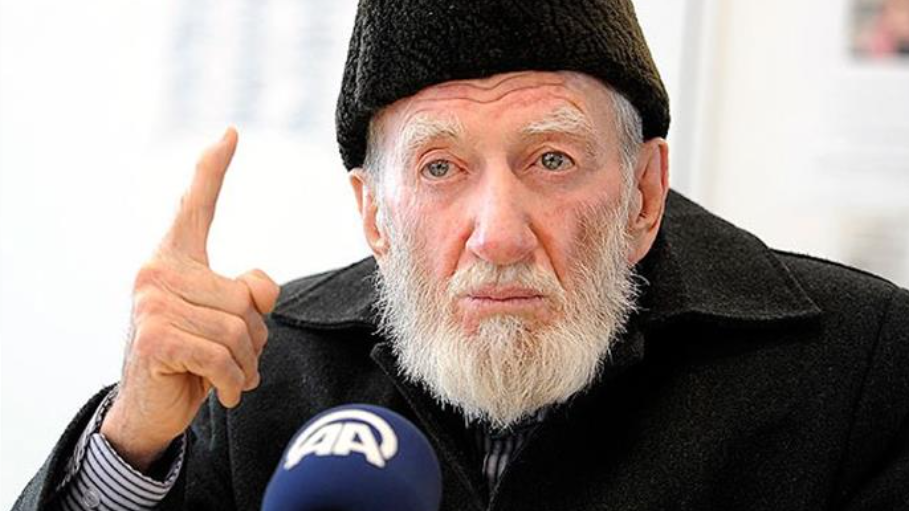At dawn on Sunday, prominent Syrian thinker Sheikh Jawdat Said died in exile in Istanbul, Turkey, at the age of about 91. He died after more than six decades of working to spread the theory of “non-violence” in the Muslim world.
Sheikh Jawdat Said is one of the founders of the theory of nonviolent Islam. Islamic history has not witnessed the emergence of a group that advocates the illegality of violence even if it is for self-defense purposes before the concepts spoken and discussed by Said.
Who’s Jawdat Said?
Sheikh Jawdat Said was born in the village of Bir Ajam, a village in the Golan villages in the southern Syrian governorate of Quneitra, in 1931. He is of Circassian origin, speaking Cherkess alongside Arabic.
In 1967, Israel occupied his village in the Golan. Therefore, he moved to Damascus, where he was more active and well-established. After the Israeli occupation of his village ended under the Agreement on Separation of Forces between the Syrian regime and Israel in 1974, he returned there and continued to work in agriculture and beekeeping in parallel to his intellectual activity, until the Syrian revolution in March 2011.
Nonviolence theory
Said was influenced by the famous Pakistani thinker Mohamed Iqbal, and increasingly by Algerian thinker Malik Ben Nabi (1907-1973), one of the most prominent thinkers of the Islamic world in the 20th century.
Jawdat Said was presenting a different Islamic ideology from the mainstream, especially with regard to “violence” through his lectures at the al-Murabit Mosque in Damascus, and through his first published books. He responded to the Muslim Brotherhood’s practice of political violence, which began to escalate from the 1960s until the early 1980s. Said’s book is the first response to the writings of Egyptian Islamic thinker Sayyid Qutb, which formed the intellectual basis of Islamic violence movements.
Read Also: The Opposition’s Grand Mufti of Syria: Who is Sheikh Osama al-Rifai?
Sheikh Said does not hide his admiration for the democratic experience in Europe and the idea of the European Union, which Muslims have not been able to achieve. However, that idea crystallized after a long and bloody history of European wars and conflicts, both national and religious.
Said remained far from any support for the Assad regime, father or son. He remained faithful to his ideas of change and non-violence and even attended the Damascus Spring forums formed by the Syrian opposition after Bashar al-Assad came to power in 2000. He was one of the signatories of the 2005 Damascus Declaration for National Democratic Change, which called for an end to the totalitarian security system.
Position on the Syrian revolution
Said participated in several peaceful demonstrations in 2011 and delivered speeches in sit-ins and mourning tents in Daraa, Damascus, and its countryside. He focused on the importance of peace and democracy.
Many of his students and believers participated in his idea of organizing peaceful demonstrations. Among his students, Yahya al-Sharbaji and Ghaith Matar (known for distributing water and flowers to army forces during demonstrations) were killed under torture after being arrested by Assad’s forces, becoming one of the most prominent icons of the Syrian revolution.
In 2011, Jawdat Said said in a press interview: “It is young people who have demanded democracy, freedom, and non-coercion in religion, not their teachers. The Arab world does not have secular-religious scholars,” adding that the university professor and imam of the mosque do not play the role required of them.
This article was translated and edited by The Syrian Observer. The Syrian Observer has not verified the content of this story. Responsibility for the information and views set out in this article lies entirely with the author.


